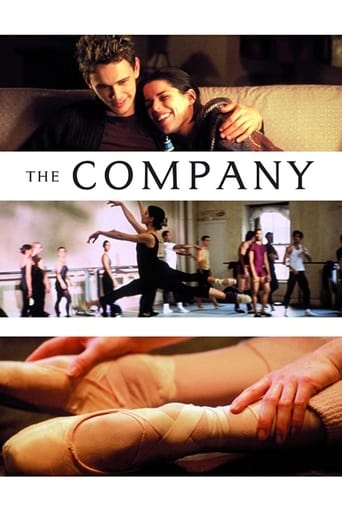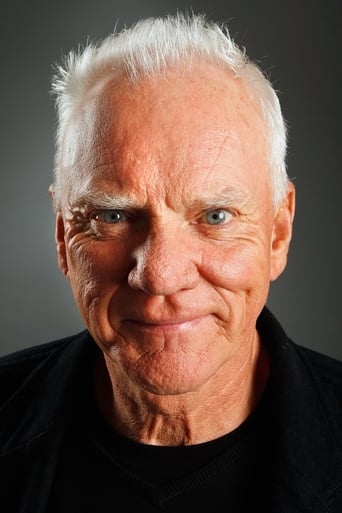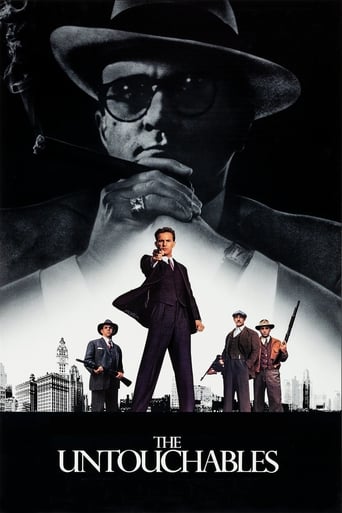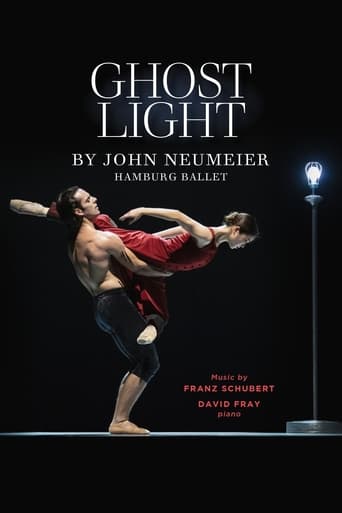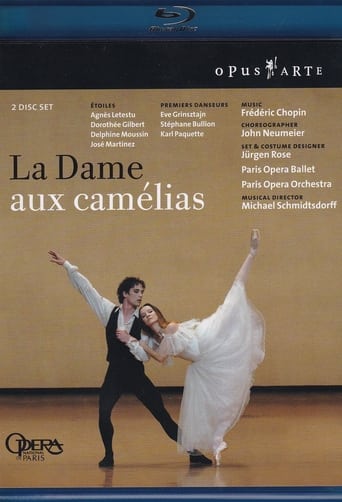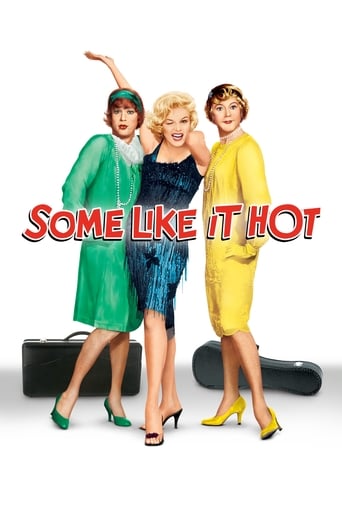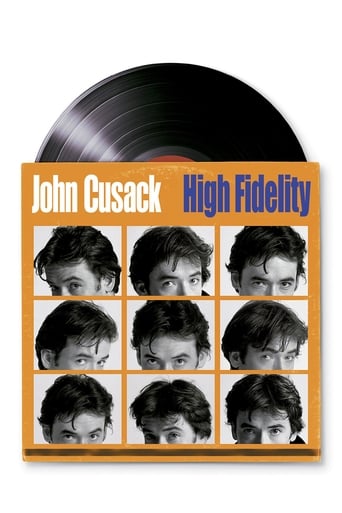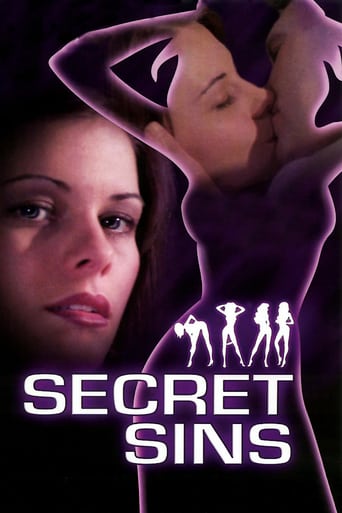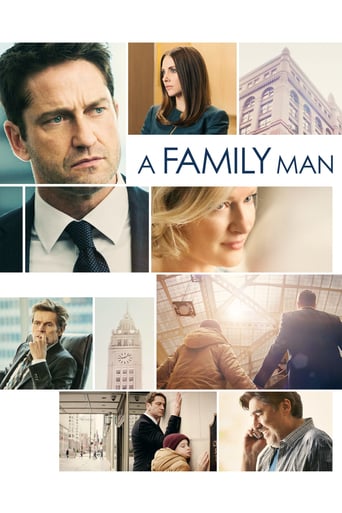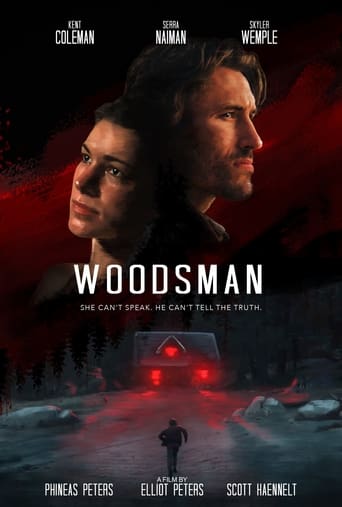The Company (2003)
Ensemble drama centered around a group of ballet dancers, with a focus on one young dancer who's poised to become a principal performer.
Watch Trailer
Cast


Similar titles
Reviews
So much average
Please don't spend money on this.
Good movie but grossly overrated
what a terribly boring film. I'm sorry but this is absolutely not deserving of best picture and will be forgotten quickly. Entertaining and engaging cinema? No. Nothing performances with flat faces and mistaking silence for subtlety.
"The Company" was a personal project for Neve Campbell for years. An ex-dancer, she is its producer, writer and star. But the film is not called "The Dancer", so her character is little more a cog in the machinery of The Joffrey Ballet of Chicago, where she is a featured dancer.Given that Robert Altman directs, we should not feel surprised that this drama has little of the usual dramatic story arc. Instead, like many Altman projects ("Nashville", e.g.) it feels like a slice of life-more documentary than drama.For fans of ballet, it offers plenty of performance footage and numerous scenes of backstage happenings, if not backstage drama. Campbell picks up a boyfriend (Dave Franco) along the way, but the relationship feels no more important that her constant battle with sore feet. This is cinema verite and those who want the (literally) painful truth about the rigors and rewards of dance will find this film committed to honesty. Or, at least, Neve Campbell's honesty. Despite the prices she has paid for being a dancer, she still loves it.If you want the traditional story arc, see "Center Stage". Instead of rigors and rewards, it offers heartaches and triumphs. "The Company" offers some of that--the scene where a dancer snaps her Achilles tendon is, for me, heart-rending. But the film does not allow that tragedy to remain personal; in the life of the company, the show goes on with little more than a hiccup.Malcolm McDowell is the imperious and impervious director of the company. He plays the part with the traits necessary for his position. He wheedles, he schmoozes, he lays down the law, his law. Much has been written about the use of "My Funny Valentine" as a musical theme. It does feel overused, and the many versions of it unnecessarily draw the viewer's attention. See "Sharkey's Machine" for a better use of the song.I am glad I saw this film, but honestly, at twenty-two minutes in, I realized I had seen it before. I had forgotten the film entirely. This is not to say that it is not worth remembering, just that our lives are filled with many significant days, and the slice-of-life offered by this film is one of them, even with its beautiful moments and the inclusion of Neve Campbell's incandescent intensity.
Wouldn't you feel elated by its whimsy and its flimsy? Imagine you and your rendezvous, and some sparkling wine afterwards. It could well be a perfect candidate for a first date on the movies, and I think this is something not outside Altman's sensibility, to his credit.The film is made in a flow of quasi-vignettes, and the perennial demand for plot may make us miss the unadorned details that stitch together the larger loomings: James Franco falling on his face in the bowling, while the dancer cannot restrain from performing after a successful shot, may well exemplify why Neve Campbell is interested in him; or how acceptingly she coils in his - sleeping - arms on a failed New Year's Eve, a bit before the big snake of a dance begins. Or how the fact that in the - a bit sleazy - bar she works, she wears a wig - why, we may wonder? I suppose is out of not wanting to get her hair smelly, which is bizarrely touching.Many a reviewer has mentioned that McDowell may be Altman's stand-in, and his self-criticism. I think that James Franco is more subtly so: Altman makes him quite possibly the most charming of them all, exactly because he echoes his very charming, humane restraint in the dancing matter (remember how almost creepily he sits and stares his love for the first time in the bar, while she plays pool, and the balls, almost self-reflexively, like dancers, roll).The rest is a go-with-the-flow bravura performance. The film ends the way it begun, framed by the night-out-for-the-dance: the huge, awkward, anthropomorphic set with its smoking mouth and scary groan read like a hint on the various cannibalistic tendencies scattered throughout, and strikes a deliciously, sweetly menacing and oddball note with the lovers' injuries.The only restraint I would have towards the film is the sense - sometimes - that Altman plays out his virtuosity with a gala ampleness and a somewhat kitschy comfortableness. But at its best, like in the dancing-in-the-storm scene, which is topped by the double, Bach suite scene, it has the sensible urbanity of an Alex Katz painting.
Watching "The Company", I was suddenly aware of how stylistically similar Robert Altman is to one of my other favourite directors, Frederick Wiseman.Wiseman is a documentary filmmaker who typically picks a space or institution as his subject (a high school, a town, a military base, a zoo, a hospital etc), and then sets about filming human beings as they work and interact within these self-contained environments. Wiseman improvises, shoots without a screenplay, is subtly satirical, hires small crews and seems content to simply observe people as they go about their various day-to-day routines within their chosen fields or environments. Altman operates in a similar way. With "The Company" he sets his sights on the Joffrey Ballet Group of Chicago, voyeuristically observing its inhabitants over the course of several months. There is seemingly no overriding narrative, no overt plot, only a series of connective strands, each character existing as a pebble in a vast mosaic.What separates Altman from Wiseman, however, is Altman's acute awareness of genre. Altman enjoys subverting expectations, turning war on its head in "MASH", noir with "The Long Goodbye", deconstructed "Bonnie and Clyde" with "Thieves Like Us", ripped apart the western with "Buffalo Bill" and "Mrs Miller", mauled the murder mystery with "Gosford Park" and pretty much invented the anti-narrative multi-character mosaic (badly imitated by Paul Haggis, Lawrence Kasdan, John Sayles, and Paul Thomas Anderson) with films like "Nashville" or "Short Cuts".With "The Company", the narrative being deconstructed is your usual "star is born" tale ("Showgirls", "Red Shoes", "All About Eve", "Black Swan" etc). Actress Neve Campbell, at first glance, appears to be the heart of the picture. She plays your typical lowly artist stereotype who works hard, hoping for that lucky break which will lead to her starring in the film's final grand performance.But as the film progresses, Altman will continually undermine the genres usual obstacles and clichés. Watch how he sets up Neve's final performance, only to have her fall and be pulled out of the show. Watch how he sets up Neve's argument with her lover, only to have them peacefully fall asleep together. Watch how he sets up a pushy mother who is consistently unable to get a word in. Watch how he sets up a thunderstorm which has no effect on the performance. Watch how he sets up the vindictive father of one ballet dancer, only to have the guy consistently brushed off.Time and time again, conflicts are set up and then undermined. This notion of avoiding conflict, of dodging the act of telling a story, is epitomised in the film by Mr A, the manager of the ballet company (and an obvious stand in for Robert Altman), who leaves the room whenever someone wishes to argue with him. The result is that, not only are conventions subverted, but the very act of storytelling seems avoided.One thus recalls the climax to Altman's "Thieves Like Us", a crime movie which likewise subverted gangster clichés. That film promised us your typical last act, gangster bloodbath, our bank robber heroes dying in slow motion, a hail of bullets peppering their bloody bodies. But when his climactic shootout occurs, Altman pulls the rug out from under our feet and cuts away. In this simple scene, we see how Altman operates. What is usually denied is given precedence; the spaces omitted in "normal" films are given, by Altman, room to breathe.For better or worse, reversals like this - both obvious and subtle - take place constantly throughout Altman's filmography. Enjoyment of his films thus depends on the audience having an intimate awareness of what is being subverted, deconstructed or undermined, which is perhaps why Altman is so despised. Those who like his films tend to like him for what he doesn't do. What he sets up and then rejects.Beyond all this you have the typical self-referential Altman layer. The act of preparing, improvising and putting on a show (ballet), is mirrored to the act of preparing, improvising and creating Altman's film. And of course you need a creative force in both worlds, personified by Mr A (Malcolm McDowell) in the film, Altman's doppelgänger. Such a self-referential layer is typical of Altman. "Nashville", "Buffalo Bill", "MASH", "Gosford Park", "Prairie Home Companion", "The Player", "Cookie's Fortune" etc, all revolve around large groups of people getting together and putting on a performance. What's fresh about "The Company" is the sheer level of restraint.8/10 - Worth two viewings.
I want to try and keep this quick.I danced ballet for many years and even I did not enjoy this film. Yes, there were a few good dance sequences, but honestly, they were few and far between. And many of them relied on fancy circus-like props and costumes. The final dance performance and climax of the movie was ridiculous and disappointing; it was almost as if the movie was making fun of itself by the time it ended - not good! The music was uninspiring.Not to mention a complete lack of plot and writing in "The Company". I didn't care about a single character in this film.Even fluff like "Center Stage" was much more enjoyable and fundamentally truer to the heart of traditional ballet and its inner workings than "The Company".Very disappointing.

